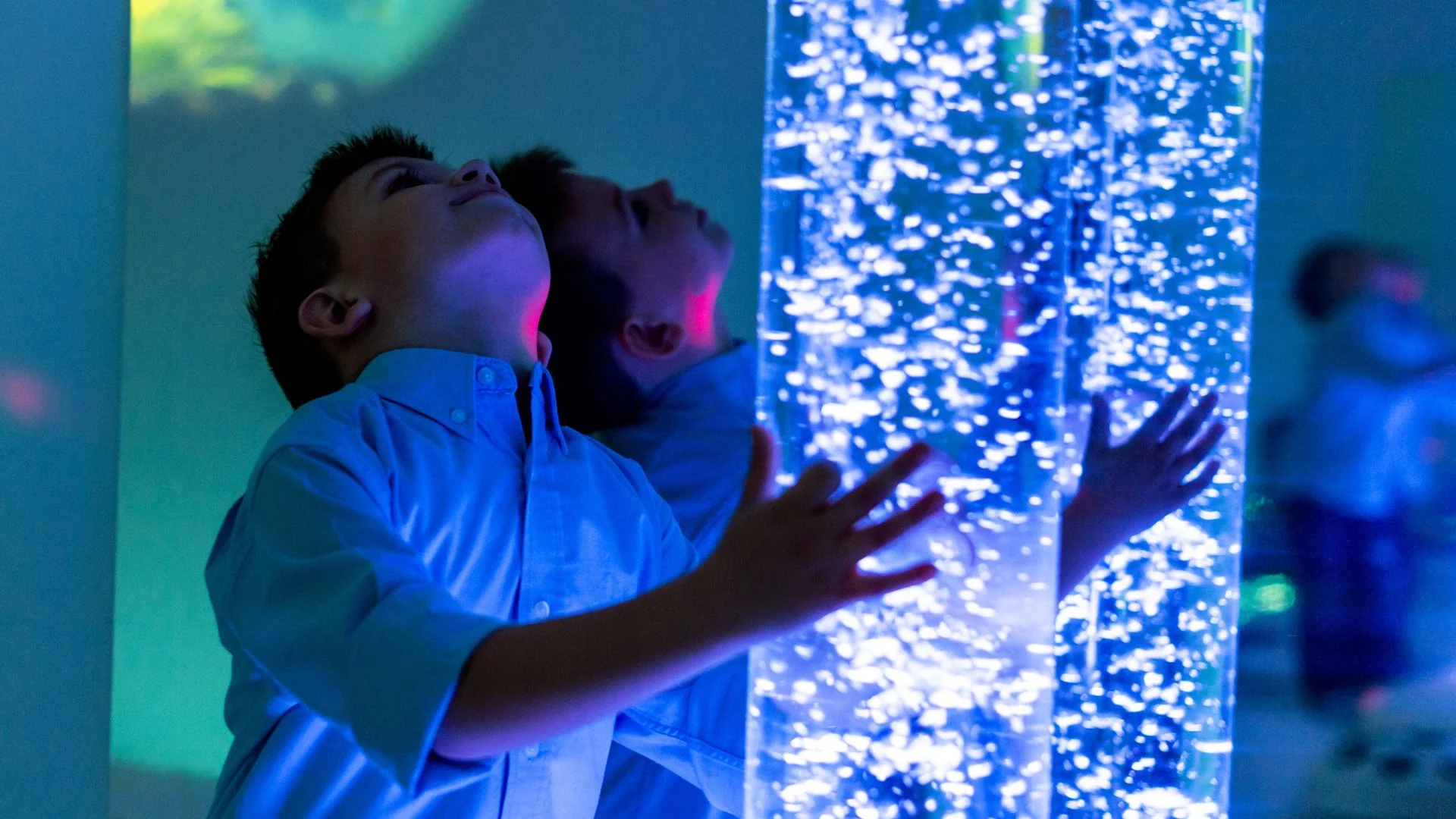
How To Ensure Students Who Don’t Celebrate Christmas Feel Included
08 Jul, 20251-2 minutes
In this blog, you will learn:
- How to ensure students who don’t celebrate Christmas feel included.
- Why it’s important to create inclusive celebrations that respect all cultural and religious backgrounds.
- Discover more about our education recruitment services.
The Christmas period is often filled with excitement, decorations, and classroom activities centered around Christmas. While these traditions bring joy to many, it’s important to remember that not all students celebrate Christmas and as educators, there is a responsibility to create a welcoming, inclusive environment where every student feels seen, valued, and respected.
During December, there are many festive activities for schools to get involved in - including stories, crafting, parties and games. However it’s important for schools to also accommodate their non-celebrating students - the last thing educators would want to do is make students feel isolated, excluded or awkward because they don’t celebrate Christmas.
This doesn’t mean eliminating celebrations altogether, but rather approaching them with sensitivity and intentionality. In this post, we’ll explore why it’s important to be inclusive and recognise all beliefs during the holidays and strategies to do so.
Why is it important to be inclusive and recognise all beliefs during the holidays?
Navigating Christmas in the classroom can be challenging when not all students share the same beliefs, values and traditions. Schools often focus heavily on Christmas, but it’s important to acknowledge and respect the diversity of celebrations, or the absence of them among students.
Many religions and cultures don’t celebrate Christmas, including Muslims, Jews, Sikhs, Hindus and Buddhists as well as some Atheists. Whether it’s for religious, personal or financial reasons, not celebrating Christmas shouldn’t be a reason to judge, single anyone out or make students feel excluded or pressured to participate.
It’s important for educators to be mindful and respectful and to create an inclusive atmosphere for students of all cultural and religious backgrounds.
A report by Public First, found that 71% of respondents celebrate Christmas specifically in a secular way and only 18% of people celebrate Christmas in a religious manner. Even those who do celebrate Christmas experience it in their own way and practice their own traditions and values. This makes it essential to ensure all students feel included regardless of how or what they celebrate.
How to ensure students who don’t celebrate Christmas feel included
How to ensure students who don’t celebrate Christmas feel included:
- Encourage student and family input.
- Teach students about global holidays.
- Explore and celebrate diverse traditions.
- Focus on charity, kindness and giving.
- Offer optional winter-themed activities.
Encourage student and family input
To ensure students who don’t celebrate Christmas feel included and comfortable in the classroom during the festivities, it’s important that teaching staff take the time to discover whether students celebrate other holidays, have different traditions or prefer not to participate at all.
Some students might feel awkward or nervous informing the Teacher that they don’t celebrate Christmas and even feel socially pressured to join in with the festivities in order to fit in. Teaching staff can communicate with students, parents and families to better understand how best to support students who don’t celebrate Christmas to make sure everyone feels included.
Encouraging student and family input gives everyone in the classroom the opportunity to explore different beliefs and customs and opens everyone's eyes to more culture and diversity.
Teachers can ask students and their families if there are meaningful traditions or customs they would like to see acknowledged or shared in the classroom to create a greater appreciation for cultural diversity and help create a more inclusive environment.
Teach students about global holidays
While it may be tempting to only focus on traditional Christian and Christmas activities, this approach may not reflect the various traditions and backgrounds represented in your classroom.
By communicating with parents and families to learn about the different holidays celebrated worldwide, school staff can gain valuable insight and perspective into how to teach students about global traditions and use more inclusive language.
Teachers can use parents' responses and knowledge to guide activities, create classroom displays or even invite parents to teach the class about different holidays and religions so students can gain greater perspective.
Showcasing holidays such as Hanukkah, Kwanzaa, Bodhi Day and Yule as well as New Year's traditions from around the world, is a fair way to ensure students who don’t celebrate Christmas also feel included and represented in the classroom. Exposing students to different cultures and faiths not only enriches the learning experience, but also validates their identities and promotes respect for all beliefs.
Explore and celebrate diverse traditions
To make learning in December more inclusive and engaging for all, encourage students to share their traditions and customs with the class. Students may find they share similar traditions despite cultural and religious differences, for example, Christmas traditions like gift giving, family gatherings and special foods are part of many other holidays celebrated in December such as Hanukkah and Kwanzaa.
Highlighting these similarities and differences helps students appreciate cultural diversity while finding common ground. By learning about the various ways that Christmas and other holidays are celebrated, students may even be inspired to adopt new traditions in the classroom and at home.
Learning how Christmas is celebrated within a broader context of diverse holidays from different religious and cultural traditions, can be both engaging and educational for students. It encourages understanding, respect and curiosity about the world, which could spark new conversations and relationships.
Focus on charity, kindness and giving
Christmas is traditionally a time for giving, an important trait that can be adopted all year round. It also promotes great lessons in charity, community service and generosity.
Several holiday traditions involve charitable acts such as Kwanzaa which emphasises collective work and responsibility as well as promoting community support and mutual aid.
Kindness and community is something that all students can adopt and carry with them all year round. During winter, reports of homelessness, loneliness and hardship often rise and it’s important for teaching staff to encourage students to think about how they can support others and make a positive impact in their communities. The holidays are a great time to teach students about the importance of helping others and giving back to the community.
There are several community projects and initiatives that schools can adopt to ensure students learn about the value of charity and helping those who are less fortunate.
Students can host a class-wide food bank, visit a local care home or hospital, or raise money for a local cause. By shifting the focus to winter and by donating clothes and toys, students can learn valuable lessons in collective work, responsibility and charitable giving. All students, regardless of whether they celebrate Christmas, can feel included and proud working together to support others and creating a sense of shared purpose and compassion within their community.
Offer optional winter-themed activities
A great way to create some magic in the classroom without anyone feeling excluded or uncomfortable, is to de-centre Christmas and opt for winter as the theme for December. While winter is often associated with Christmas, it is a season rather than a celebration with religious ties or traditions, one that can be embraced by everyone, regardless of their culture or traditions.
Instead of Christmas-themed games, activities and lessons in the classroom, Teachers can create a theme around the seasons instead. There are plenty of non-Christmas or seasonal ways to keep students entertained and engaged such as studying snowflakes, singing non-secular songs, or going ice skating. By incorporating some non religious festivities into your timetable, students can still enjoy parts of Christmas and feel included.
Even simple activities like playing with lego, enjoying some cake and setting up an obstacle course in the hall can bring joy to students without being tied to a specific holiday. By avoiding overly religious or festive activities, schools can ensure that all students feel comfortable, respected and able to take part without being excluded.
Recruit teaching, support and facilities staff
As a specialist education recruitment agency, we support mainstream and SEND schools with their recruitment needs.
Whether you’re searching for teaching, support, or facilities staff, we have exclusive access to some of the best educators in the North West.
If you’re struggling to fill a vacancy, why not get in touch with one of our team to see how we can help?
- Primary schools - Jimmy Callagher
- Secondary schools - Liam Jones
- SEND schools - Jamie Heath
Teaching, school support staff and school facilities jobs
If you’re searching for a new career opportunity, why not take a look at the latest education jobs, or simply upload your CV to be notified when a relevant job opening becomes available.
Meet Jamie Heath
Who is Spencer Clarke Group?
Established in 2017, we’re an award winning and progressive recruitment agency based in the heart of the North West. Our reputation is built on trust, expertise and an unwavering commitment to exceed expectations.
In 2024, we were named Recruitment Agency of the Year at the prestigious Recruiter Awards, an accolade we are extremely proud of.




